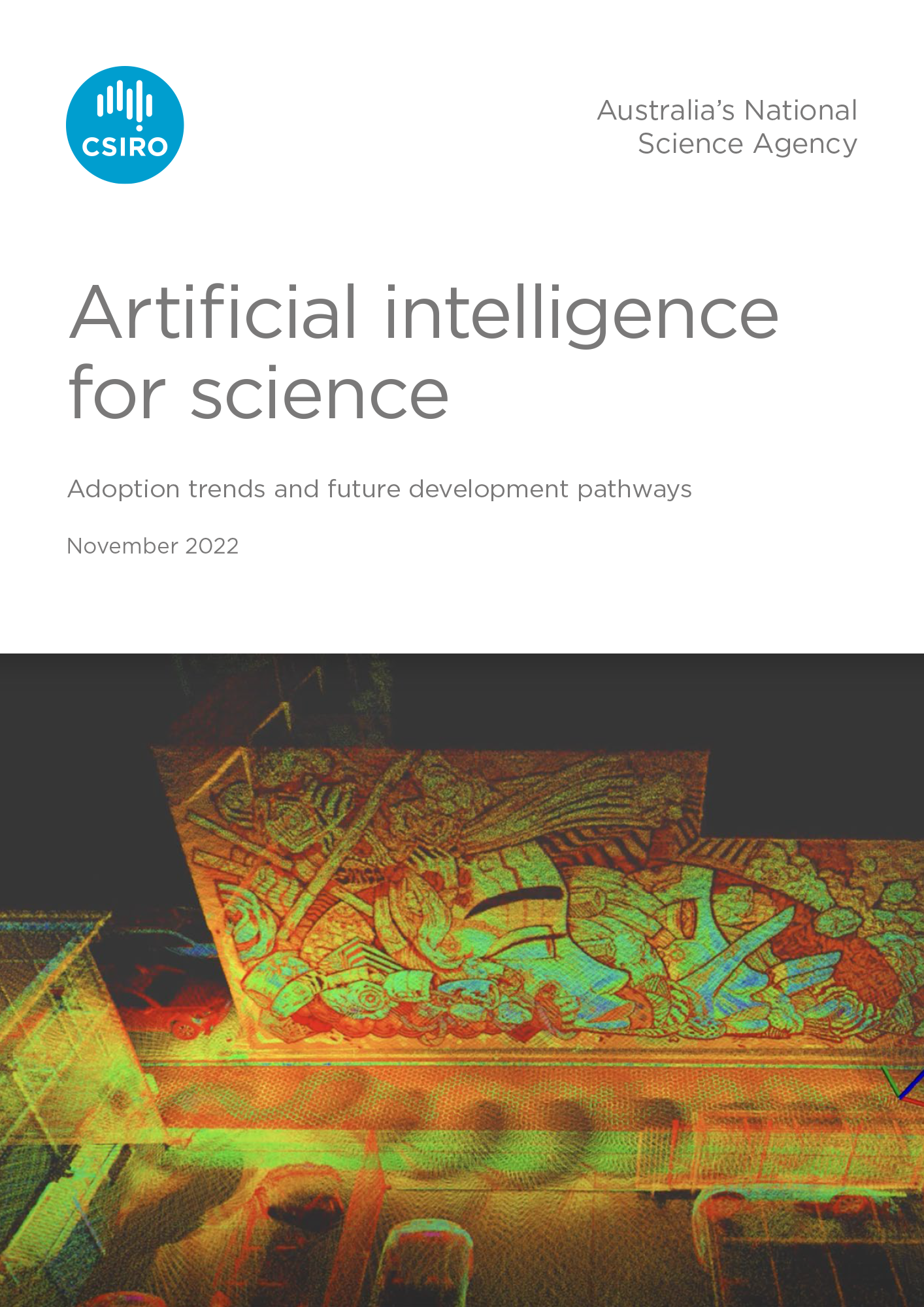
“AI is no longer just the domain of computer scientists or mathematicians; it is now a significant enabling force across all fields of science, which is something we live every day at CSIRO where digital technologies are accelerating the pace and scale of our research in fields ranging from agriculture to energy to manufacturing and beyond.”
— CSIRO Chief Scientist, Professor Bronwyn Fox
We are currently amid the largest surge, arguably ‘boom’, in the application and development of artificial intelligence (AI) for scientific research in history. Scholarly publications, patents, education, training, salaries, research activity and investment are increasing at unprecedented rates.
We may now be on the steepest part of the adoption and development curve. This is happening across the entire economy. Practically all industry sectors, advanced economies, professions and world regions are seeing rapid uptake of AI. The science sector is no exception.
There’s a worldwide competitive race, and collaborative movement, to develop AI capability. Many scientists, and science organisations, are aiming to uplift AI capability.
AI may help scientists address humanity’s greatest challenges such as climate change, pollution, resource scarcity and infectious diseases. However, not all AI projects have met the expectations of scientists.
Sometimes AI projects can be complex, costly, time-consuming and labour-intensive with limited results. The pathway to AI enablement, which most science organisations have embarked upon, is both rewarding and challenging.
This report has been prepared to help science managers, science organisations and investors understand plausible development pathways for AI. Our aim is to describe how AI has changed science and what the future may hold.
Read the full report:
- Artificial Intelligence for Science report PDF
- Artificial Intelligence for Science report (accessible text version) TXT
Artificial intelligence for science
Adoption trends and future development pathways
November 2022
The image below the above text is a 3D SLAM scan of Fish Lane in Brisbane.
“AI is no longer just the domain of computer scientists or mathematicians; it is now a significant enabling force across all fields of science, which is something we live every day at CSIRO where digital technologies are accelerating the pace and scale of our research in fields ranging from agriculture to energy to manufacturing and beyond.”
— CSIRO Chief Scientist, Professor Bronwyn Fox
We are currently amid the largest surge, arguably ‘boom’, in the application and development of artificial intelligence (AI) for scientific research in history. Scholarly publications, patents, education, training, salaries, research activity and investment are increasing at unprecedented rates.
We may now be on the steepest part of the adoption and development curve. This is happening across the entire economy. Practically all industry sectors, advanced economies, professions and world regions are seeing rapid uptake of AI. The science sector is no exception.
There’s a worldwide competitive race, and collaborative movement, to develop AI capability. Many scientists, and science organisations, are aiming to uplift AI capability.
AI may help scientists address humanity’s greatest challenges such as climate change, pollution, resource scarcity and infectious diseases. However, not all AI projects have met the expectations of scientists.
Sometimes AI projects can be complex, costly, time-consuming and labour-intensive with limited results. The pathway to AI enablement, which most science organisations have embarked upon, is both rewarding and challenging.
This report has been prepared to help science managers, science organisations and investors understand plausible development pathways for AI. Our aim is to describe how AI has changed science and what the future may hold.
